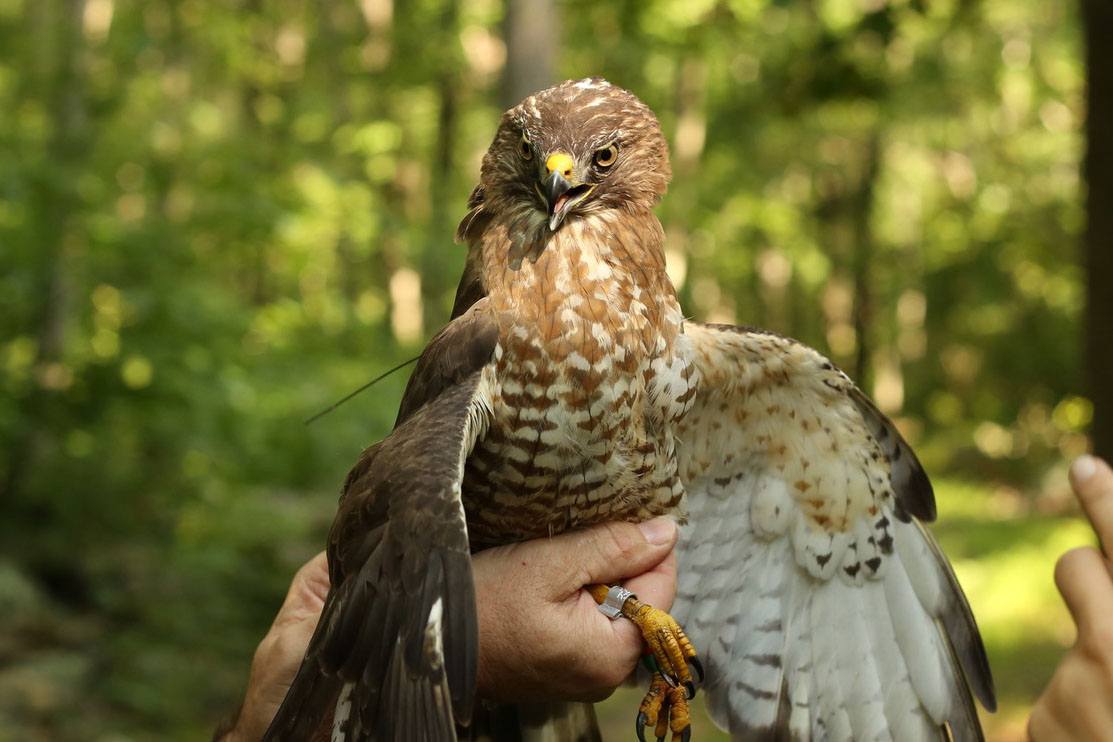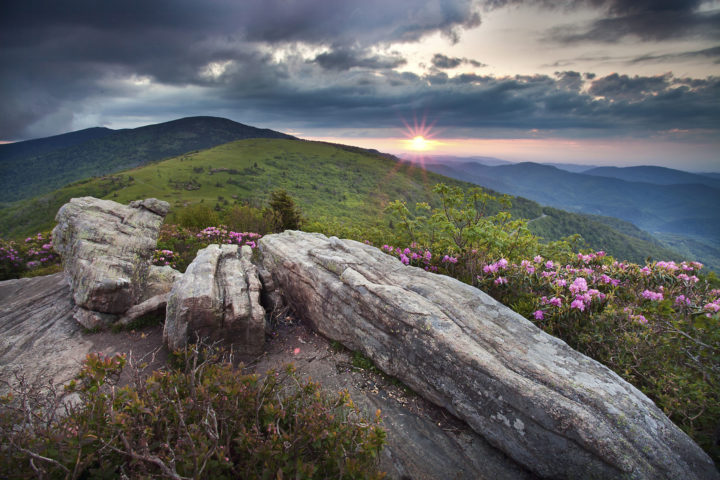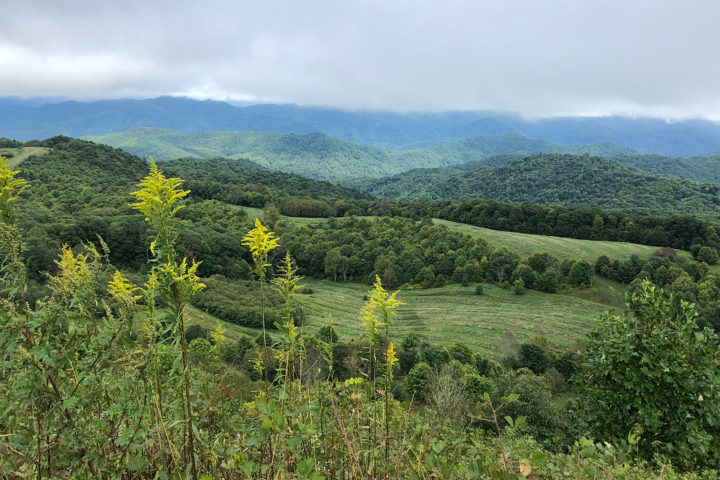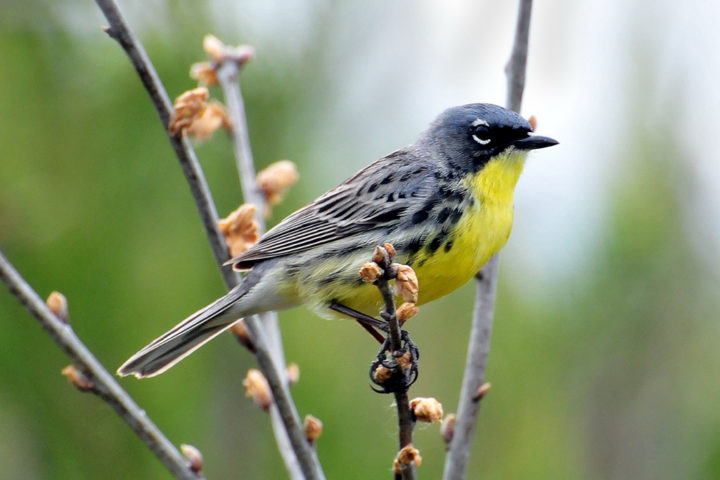A Vital Migration Range
What Soars Above Kittatinny Ridge
January 23, 2019
Whether a birder or not yet, the fall hawk and eagle migrations of the Appalachian Trail are stunning, especially along the 125 miles from Delaware Water Gap into Cumberland County that follow Kittatinny Ridge — the premier migration range of the eastern U.S.
“We record between 18-20,000 raptors just at Hawk Mountain and between 60-70,000 other birds, from ravens to warblers each year,” says Laurie Goodrich, director of long-term monitoring at Hawk Mountain Sanctuary, Pennsylvania’s world-renowned public viewpoint that’s linked to the A.T. by its Skyline Trail. The best hawk watching is in the fall, when birds soar south on updrafts created by air currents rising up the ridge. Returning north in spring, most hawks disperse across a wider landscape to ride ascending columns of warm air, called thermals. However, when the wind is steady from the south, they will funnel above Kittatinny Ridge.

Rosalie, an adult female broad-winged hawk, is fitted with a transmitter allowing scientists to track her migration patterns. Photo by Zach Bordner.
Among those long-distance flyers are several bearing telemetry backpacks. Rosalie is one of 12 tagged female broad-winged hawks. Her nesting territory encompasses both the A.T. and Hawk Mountain lands. In mid-September of 2018, this bird champion of the A.T. flew south from Pennsylvania to arrive 82 days later in the forested Bahuaja-Sonene National Park of southern Peru. On the way, she took rest stops in the Appalachians, flying downslope where forests meet wetlands or meadows and where the hunting for rodents, lizards, and snakes is best.
“We need to maintain the ecological integrity of the ridges by protecting the bases too,” says Goodrich.
Favorable winds alone are not enough. All birds must find shelter and high-calorie foods along the way. Reaching Veracruz, Mexico, Rosalie converged with a river of the small, compact hawks with distinctive banded tails — more than a million broad-wings in a season. It was here that Goodrich witnessed an unforgettable scene.
“In 2016, we had four females tagged. I was watching when the broad wings were coming through and it was really exciting knowing this bird we tagged up in the Poconos was right over our heads.”
Caught in 2016 at Hawk Mountain Sanctuary itself, Rosalie’s transmitter will soon wear out. This spring, Goodrich hopes to capture a hawk in Maine, potentially a new champion to follow its journey along the entire length of the A.T., shedding light on more key places to protect.
Cerulean Warbler Haven
Kittatinny Ridge is also critical for a much smaller bird, the cerulean warbler. This dashing blue slip of a songster nests high in the forest canopy, then migrates to the Andes Mountains — facing deforestation threats in both places. Fortunately, people are stepping up internationally to reverse the downward spiral of a 70 percent decline in 40 years. The Kittatinny Ridge Coalition, led by the ATC and Audubon, works to protect big woodlands for the cerulean warbler and a host of other interior nesting birds, including broad-winged hawks.
Header image by JackTheVicar at English Q52, CC BY-SA 3.0, https://commons.wikimedia.org/w/index.php?curid=61658656
Discover More

Roan Highlands Haven
Appalachian Balds are for the Birds
The iconic bald mountains along the Appalachian Trail in North Carolina and Tennessee are significant to the future of migratory and resident birds.

Official Blog
The Rewilding of Max Patch
Striking a balance between sustaining biodiversity and ensuring an exceptional Trail experience.

By Marina Ritchie
Wild Skyway
Wherever you are on the Appalachian Trail, birds offer sweet companionship. Yet, as hiker numbers soar, bird populations tumble.
